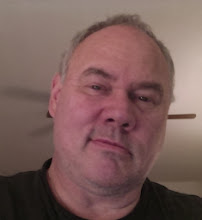"When people are ill, they consult a physician or another type of healer. To heal people is to restore their health and energy so that they may go forth and maximize their potential. But what do we do when the land is sick? Today, a forester would be called in to treat something called "land sickness." However, in the 1920's land sickness was unheard of until Aldo Leopold defined it.
"...Leopold believed the health of the land could be maintained by the exact science of determining the symptoms of its sickness. He wrote, "In general, the trend of evidence shows that in land, just as in the human body, the symptoms may lie in one organ and the cause in another." Some symptoms of land sickness included increasing pest populations and vanishing plant and animal species. For example, when prairie dogs and squirrels increased to pest levels, they were poisoned. However, science shows that deviations in the plant community might have caused the increased pest populations. Problems with plants could also result in poor soil.
"Leopold realized that "the effort to control the health of the land has not been very successful. It is now generally understood that when soil loses fertility, or washes away faster than it forms, and when water systems exhibit abnormal floods and shortages, the land is sick." He saw that many conservation treatments were superficial. He wrote, "Flood control dams have no relation to the cause of floods. Check dams and terraces do not touch the cause of erosion."
"The land's ability to receive and store energy is known as its fertility. Leopold wrote, "Thus when a soil loses its fertility, we pour on fertilizer, or at best alter its tame flora and fauna, without considering the fact that its wild flora and fauna, which built the soil to begin with, may likewise be important in its maintenance."
"To study land health, Leopold said two "norms" are needed. The first would be a place where the land has changed little despite a lengthy occupation of mankind. The second would be wilderness untouched by human civilizations. Through scientific analysis, detailed research and observation, a land doctor can discover how the wilderness has been able to maintain itself for a long period.
"The concept of studying the interrelationships of organisms and their environment was first introduced in 1869 by Ernst Haeckel. The idea then developed into the study of plant and animal communities. By 1935, the word "ecosystem" was introduced. Leopold was unique in that he proposed to humankind the idea of land ethics and acknowledged the land pyramid, beginning with soil, plants, insects, rodents, predators and humans. He wrote, "In many cases we literally do not know how good a performance to expect of healthy land unless we have a wild area for comparison with sick ones."
From Borderlands (http://www.epcc.edu/nwlibrary/borderlands/
Sunday, November 26, 2006
Subscribe to:
Post Comments (Atom)

No comments:
Post a Comment